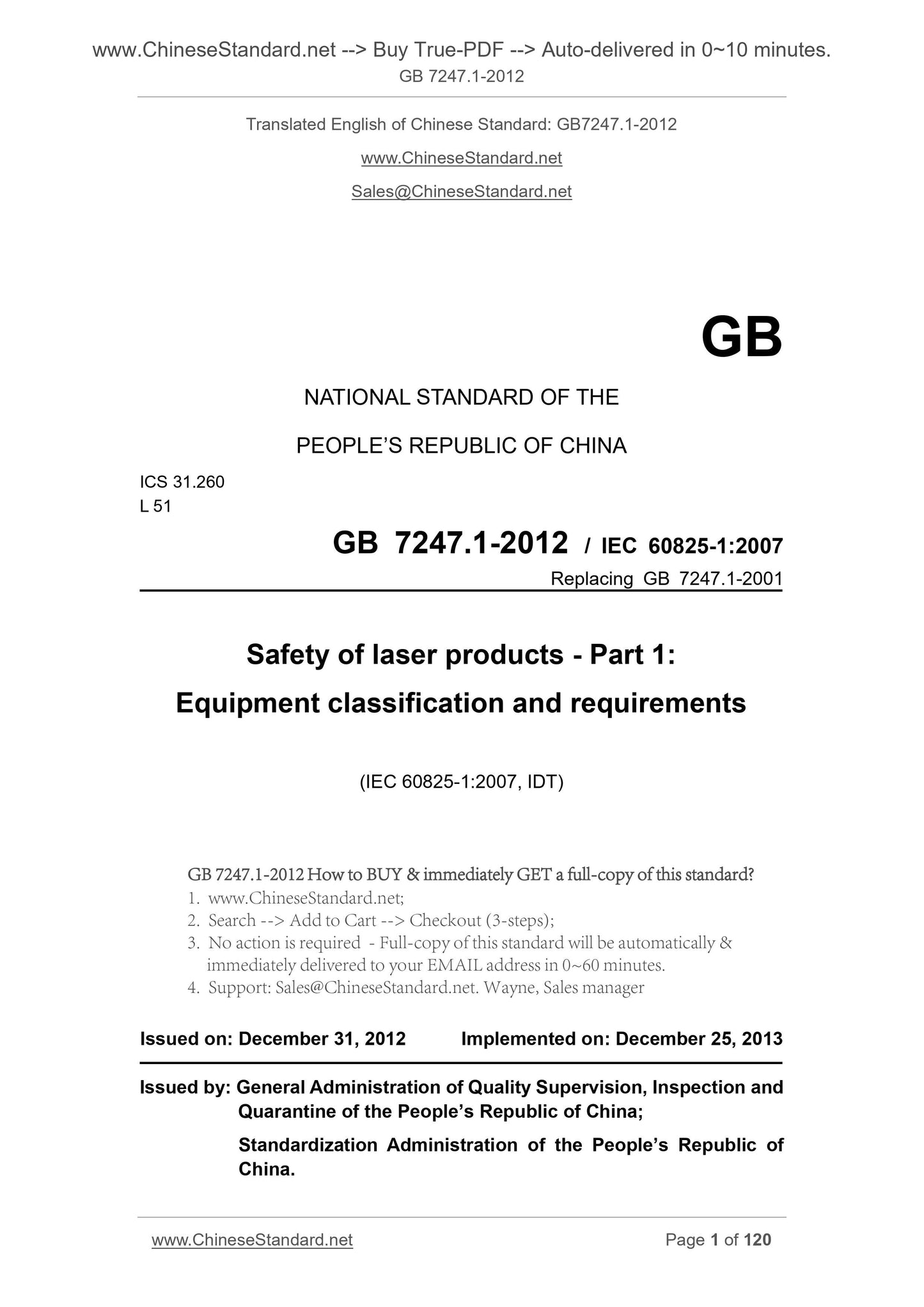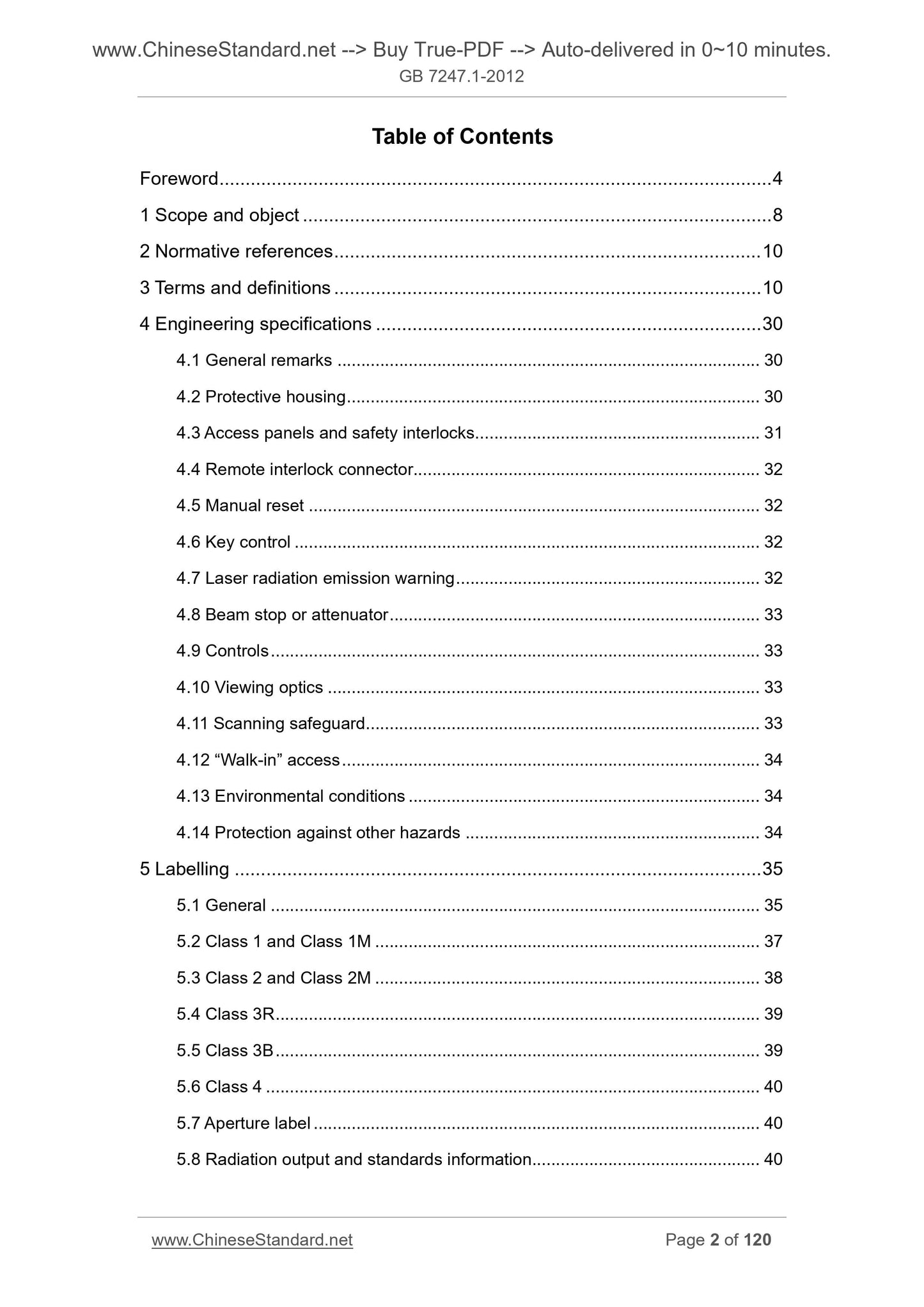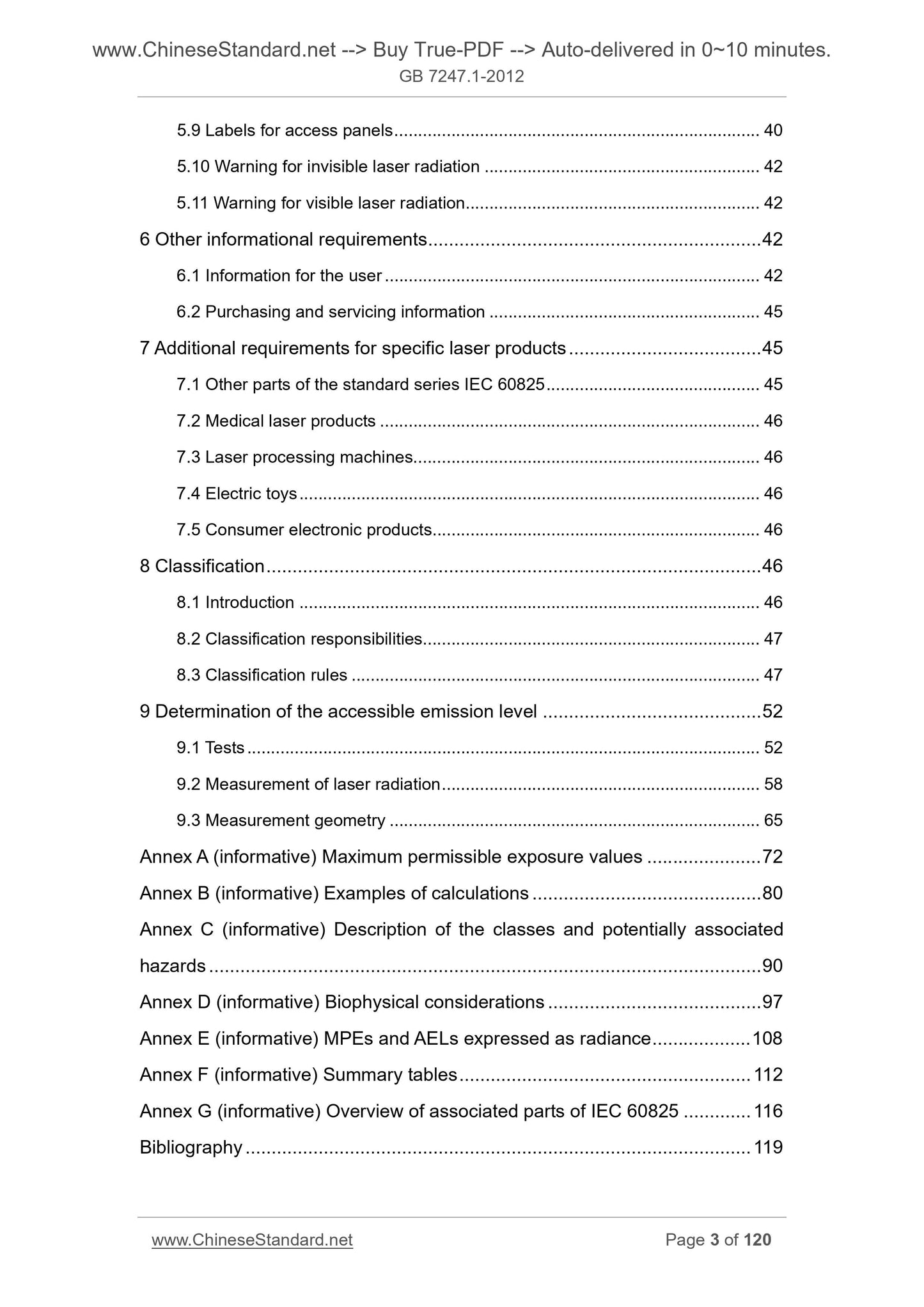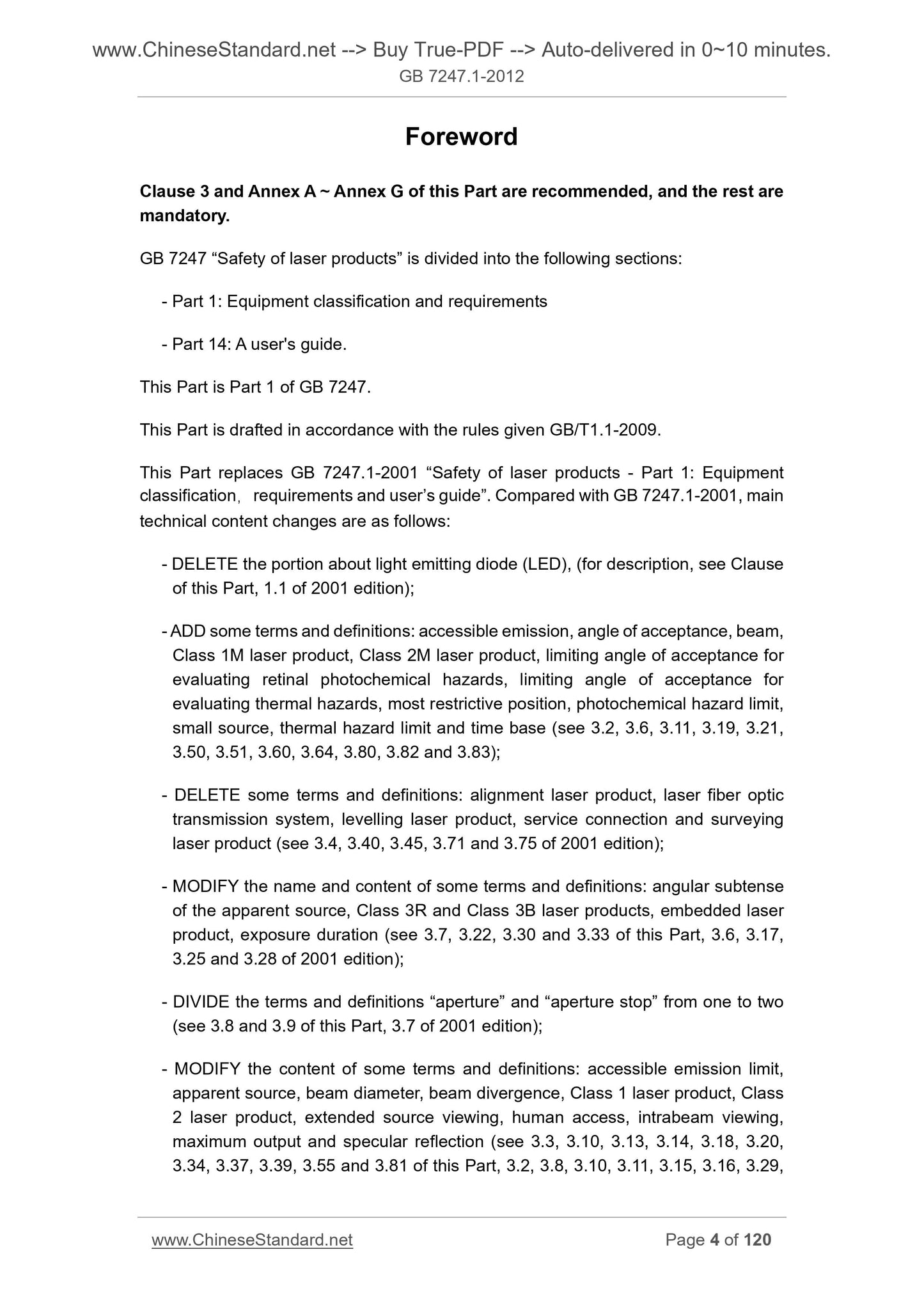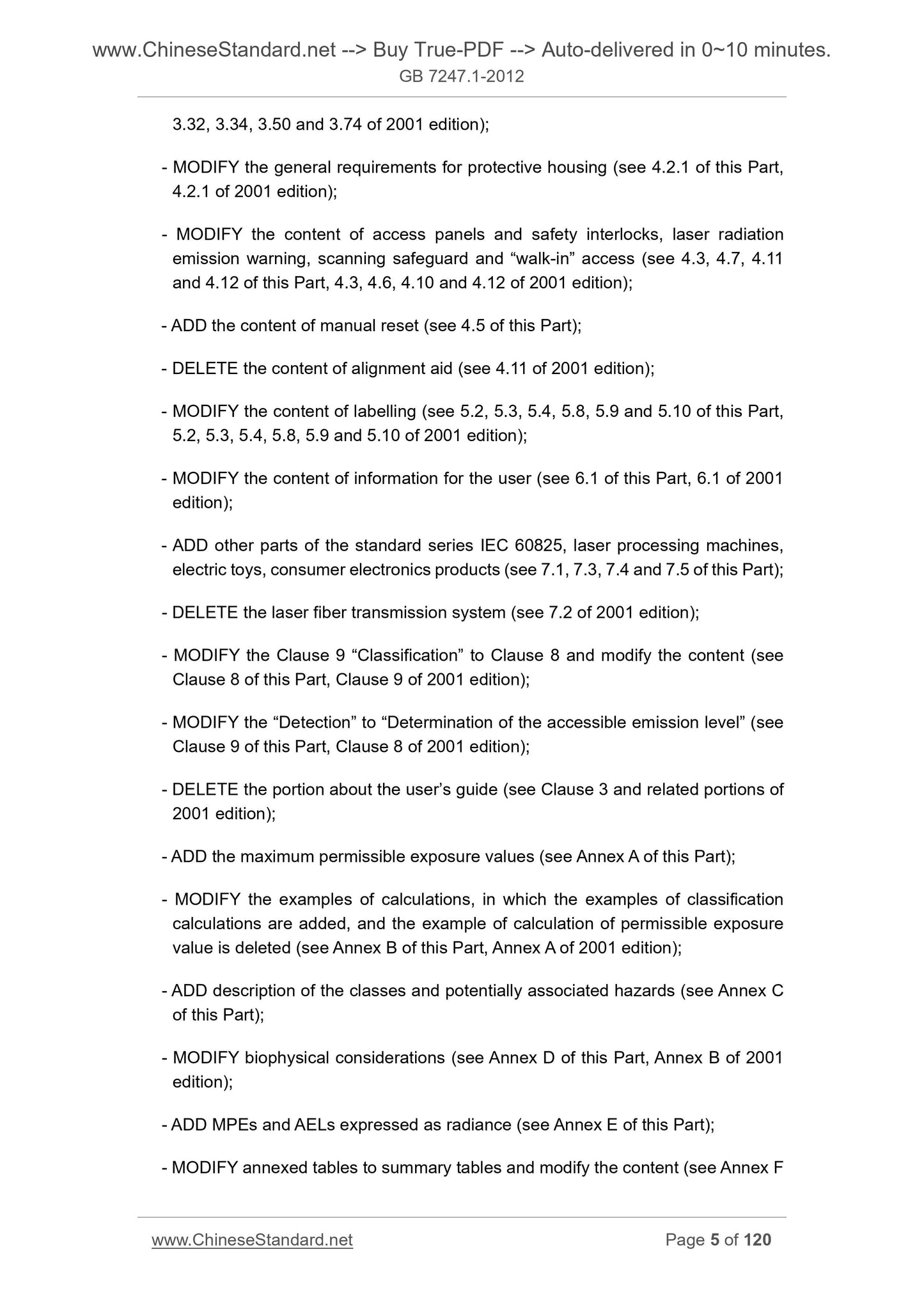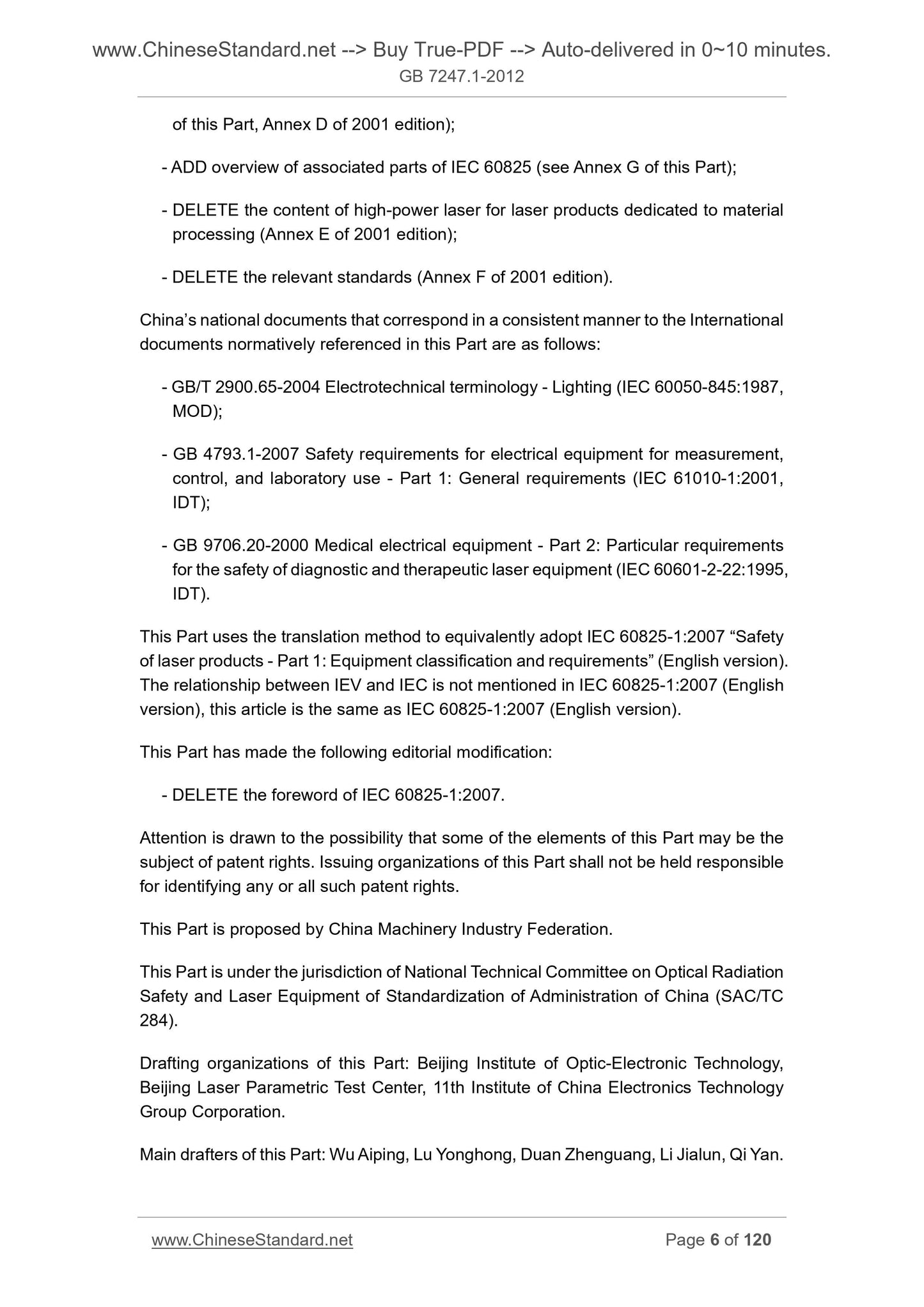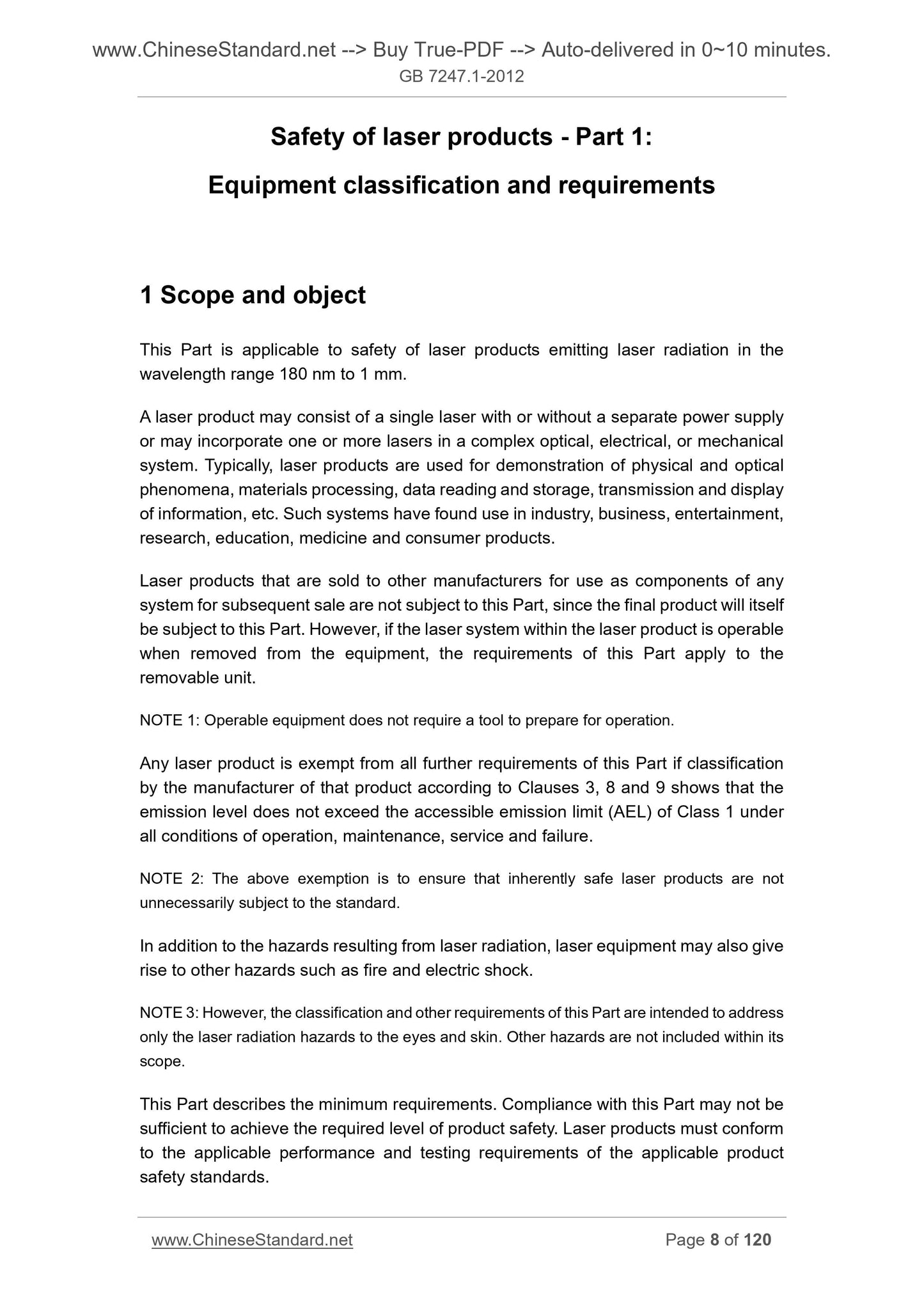1
/
of
7
www.ChineseStandard.us -- Field Test Asia Pte. Ltd.
GB 7247.1-2012 English PDF
GB 7247.1-2012 English PDF
Regular price
$365.00
Regular price
Sale price
$365.00
Unit price
/
per
Shipping calculated at checkout.
Couldn't load pickup availability
GB 7247.1-2012: Safety of laser products -- Part 1: Equipment classification and requirements
Delivery: 9 seconds. Download (and Email) true-PDF + Invoice.Get Quotation: Click GB 7247.1-2012 (Self-service in 1-minute)
Newer / historical versions: GB 7247.1-2012
Preview True-PDF
Scope
This section applies to the wavelength range within safe ~ 1mm 180nm laser radiation of laser products.A laser product may be a single laser with or without an independent power source, it may be equipped with one or more lasers
Sophisticated optical, electrical or mechanical systems. Laser products are generally used to demonstrate physical and optical phenomena, material processing, and reads out the stored data,
Transmission and display information. These systems have been used in industry, business, entertainment, research, education, medical and consumer products.
Sold to other manufacturers of laser products used as components of the system may not comply with this section, because the final product itself will be subject to this section.
However, if the product of the laser system after separation of the laser device is operable device, then the cells were removed should meet the requirements of this section.
Note 1.The operation of the equipment does not need to prepare for its functioning tool.
If the manufacturer in accordance with Chapter 3, Section 8, Chapter 9 classification production of laser products, without regard to the requirements of this section, indicating shock
Light products in all operating, maintenance, overhaul and its emission levels under fault conditions is not more than 1 class of accessible emission limit (ALE).
Note 2.The exemption mentioned above is to ensure the safety of the original laser products are not subject to the standard constraints.
In addition to the harm caused by the laser radiation, the laser apparatus can cause other injury, such as electric shock and fire.
Note 3.However, classification and other requirements in this section only harmful to the eyes and skin against laser radiation. Other hazards are not included within the scope of this section.
This section describes the minimum requirements. Compliance with this section may not be sufficient to achieve the level of safety required for the product. Laser products must comply
With the corresponding product safety standards compatible performance and test requirements.
Note 4.Other criteria may include additional requirements. You should consider the intended application and user groups. For example, 3B or Class 4 laser products are not suitable for use as a consumer product.
If the laser system forms part of the device, the device must comply with other IEC product safety standard, [such as medical equipment (IEC 60601-
2-22), information technology equipment (IEC 60950), audio and video equipment (IEC 60065), equipment (IEC 60079) for use in hazardous environments, electrical
Toys (IEC 62115)]. The IEC Guide 1041) terms, this part applies to hazards caused by the laser radiation. If not applicable
Product safety standards, you should use the IEC 61010-1.
1) IEC Guide 104.1997, the development and use of basic safety publications in safety publications and publication series of safety.
In previous versions, LEDs (light emitting diodes) included within the scope of IEC 60825-1, IEC 60825 is still included in the system
The rest of the column Standard. However, with the development of the luminaire safety standards, LEDs (light emitting diode) light radiation is generally more suitable for security
In the luminaire engagement predetermined safety standards. LEDs (light emitting diodes) is deleted from the scope of the section, does not interfere with other criteria in relation stimulated
It includes LEDs (light emitting diode) light products. CIES009 may be used to determine the LED (light emitting diode) or contain one or more
Risk of LEDs (light emitting diodes) product classification.
This section MPE (maximum permissible exposure) values only for the laser radiation and not to the secondary radiation. However, if some kind of business deposit
Accompanied by a dangerous radiation in accessible, the potential harm can be carried out carefully assessed using MPE value of the laser radiation.
MPE values do not apply for the medical treatment of patients or laser irradiation of human beauty.
Note 5.Appendices Appendix A ~ G comprises a general guide and lists a number of typical examples. But it must not be seen as determining the appendix or exhaustive, but rather as
Reference the corresponding provisions of this section.
This section has the following purposes.
--- introduction of lasers and laser products according to optical radiation hazard degree classification system to help hazard assessment and help users determine control measures;
--- establish requirements for manufacturers to provide information in order to take appropriate preventive measures;
--- by labeling and instructions ensure that warnings of hazards associated with radiation up to laser products;
--- to reduce the possibility of injury, make up unnecessary radiation minimized, and improved control of the laser radiation hazards through protective measures.
Basic Data
| Standard ID | GB 7247.1-2012 (GB7247.1-2012) |
| Description (Translated English) | Safety of laser products -- Part 1: Equipment classification and requirements |
| Sector / Industry | National Standard |
| Classification of Chinese Standard | L51 |
| Classification of International Standard | 31.260 |
| Word Count Estimation | 78,767 |
| Older Standard (superseded by this standard) | GB 7247.1-2001 |
| Quoted Standard | IEC 60050-845-1987; IEC 60601-2-22; IEC 61010-1 |
| Adopted Standard | IEC 60825-1-2007, IDT |
| Regulation (derived from) | National Standards Bulletin No. 42 of 2012 |
| Issuing agency(ies) | General Administration of Quality Supervision, Inspection and Quarantine of the People's Republic of China, Standardization Administration of the People's Republic of China |
| Summary | This Chinese standard applies to the wavelength range of 180 nm ~ 1mm laser products within the safety of laser radiation. A laser product could be with or without a separate power of a single laser, it can be equipped with one or more lasers complex opti |
Share
